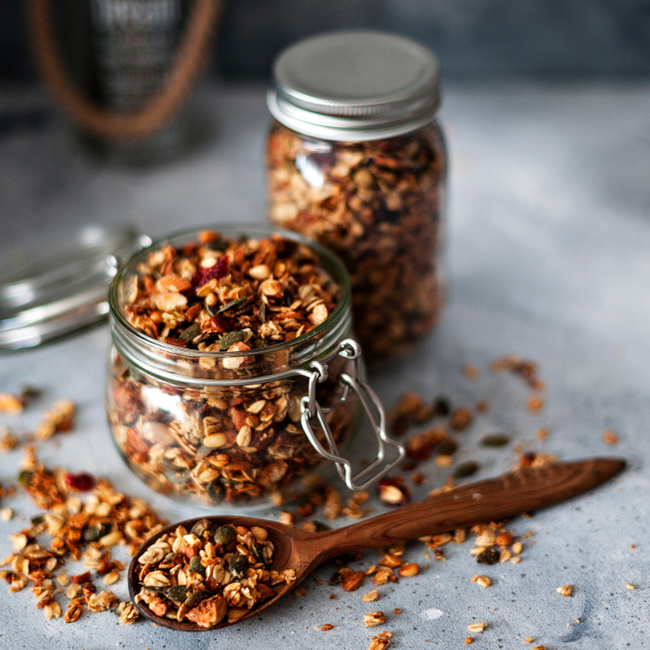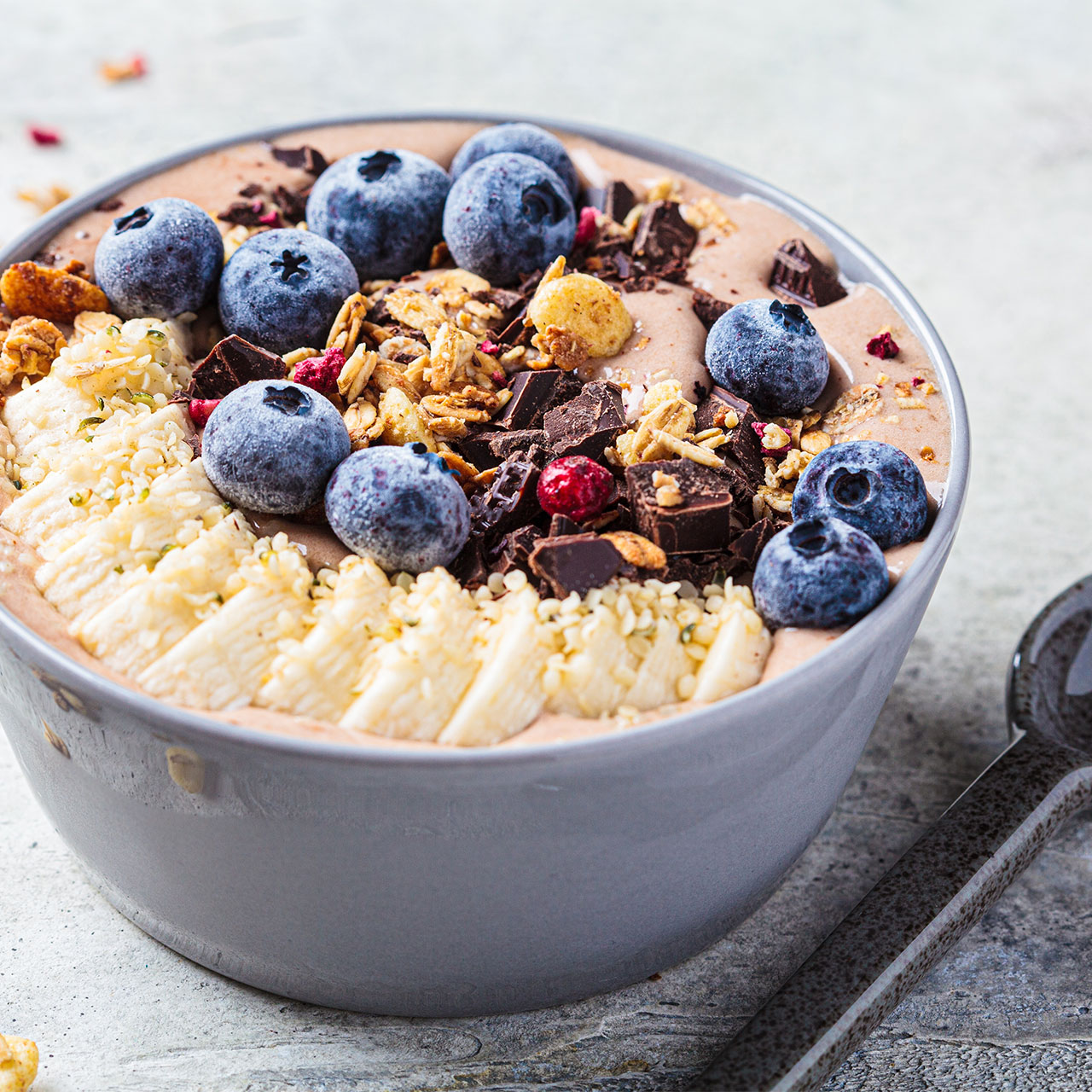Metabolism plays a crucial role in weight loss and overall health. It’s the process by which our bodies convert what we eat and drink into energy, supporting everything from breathing to exercising. A well-functioning metabolism helps maintain energy levels and aids in burning calories more efficiently. However, not every food marketed as “healthy” actually supports a healthy metabolism. In fact, some of these foods can have the opposite effect, disrupting blood sugar levels, contributing to insulin resistance, and ultimately leading to a damaged metabolism.
To shed some light on a few of the biggest culprits, we spoke to dietitians Krutika Nanavati and Varsha Khatri. They pointed out several “healthy” foods that may lack the nutritional value they promise and can negatively impact metabolism, from granola to store-bought smoothies. Find all of their expert insight below.


1. Granola and Granola Bars
Many granolas and bars contain added sugar, unhealthy fats, and refined grains. According to Nanavati, "The high sugar content can lead to blood sugar spikes and crashes, disrupting metabolism." These sugar spikes can lead to insulin resistance, where cells become less responsive to insulin, hindering the body's ability to use energy efficiently. Instead, Nanavati suggests opting for homemade granola with rolled oats, nuts, seeds, and a touch of natural sweetener like honey. When choosing bars, look for those with minimal added sugar and whole grains like oats or brown rice.

2. Flavored Yogurts
Flavored yogurts are often packed with added sugar and artificial flavors while lacking protein and healthy fats. "Like granola, the high sugar content disrupts blood sugar regulation," Nanavati explains. This can negatively impact metabolism, leading to energy crashes and overeating. A healthier alternative is to choose plain yogurt and add fruit, nuts, or seeds for sweetness and texture, providing a more balanced and nutritious option. Greek yogurt, in particular, is packed with health benefits.

3. Fruit Juices
Juicing removes most of the fiber from fruit, leaving behind a concentrated sugar drink. This can lead to blood sugar spikes and doesn’t provide the satiating effect of whole fruit. Nanavati points out that "the rapid sugar influx can disrupt insulin sensitivity and metabolism." Eating whole fruit instead of juice provides fiber, vitamins, and minerals, keeping you fuller for longer and supporting better metabolic health.

4. Diet Sodas and Artificially Sweetened Beverages
Artificial sweeteners aren't necessarily better than processed sugar; they come with their own health risks. They may disrupt gut bacteria and potentially alter metabolism. Nanavati notes, "While calorie-free, artificial sweeteners might trick the body into craving more sugar, potentially leading to overeating." Diet sodas also often contain citric acid, which can erode tooth enamel. A refreshing and healthier alternative is sparkling water with a squeeze of citrus or unsweetened iced tea, which can satisfy your thirst without the negative impacts on metabolism.

5. "Healthy" Snack Bars
Some "healthy" snack bars can contain hidden sugars, unhealthy fats, and refined flour. "Combining sugar and refined carbohydrates can disrupt blood sugar and potentially slow metabolism," Nanavati warns. For a balanced and satisfying snack, she recommends a homemade trail mix with nuts, seeds, and dried fruit. When choosing snack bars, look for those with whole-food ingredients and minimal added sugar to ensure you're getting a nutritious option.

6. Store-bought smoothies
Store-bought or pre-made smoothies can be deceptively unhealthy due to excess sugars, syrups, and lack of fiber. Khatri points out that "those made with fruit juice bases can have high levels of fructose, leading to rapid absorption of sugar, causing insulin spikes and fat storage." These smoothies are also less filling, leading to higher calorie consumption. Khatri suggests making your own smoothie with whole fruits, vegetables, and Greek yogurt or protein powder as a protein source. Adding flaxseeds and leafy greens can help increase fiber, promoting satiety and nutritional balance.
Ultimately, while these foods may seem healthy at first glance, it's essential to scrutinize their ingredients and nutritional value. By making mindful choices and opting for whole, minimally processed foods, you can support a healthy metabolism and better overall health.
READ MORE: Experts Say To Prioritize These 9 Healthy Carbs For A Faster Metabolism


























